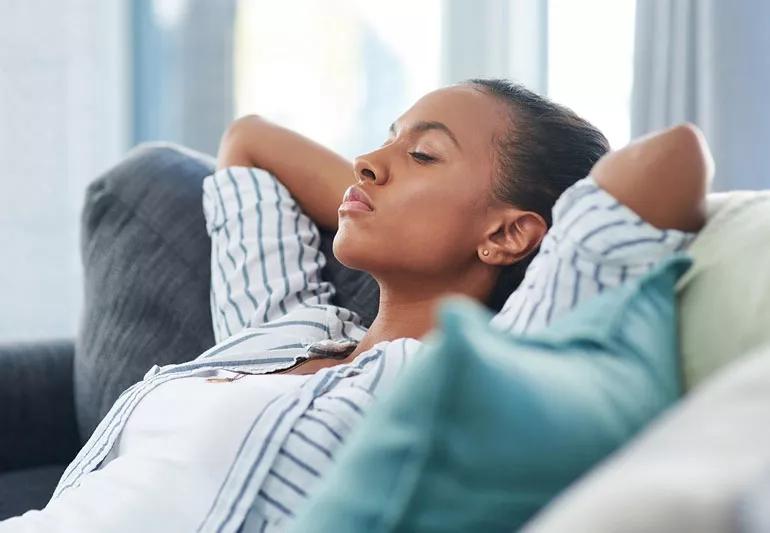How a quick catnap can give you a boost

Image content: This image is available to view online.
View image online (https://assets.clevelandclinic.org/transform/fd420e7d-67d4-4705-bee2-6ad36763de70/powerNap-1132766315-770x533-1_jpg)
woman taking power nap
Unless you live in one of the (lucky) countries where midday siestas are the norm, you probably aren’t used to taking an afternoon nap. But it may be time to start.
Advertisement
Cleveland Clinic is a non-profit academic medical center. Advertising on our site helps support our mission. We do not endorse non-Cleveland Clinic products or services. Policy
You can reap several benefits from a short power nap, says pulmonologist and sleep apnea specialist Samuel Gurevich, MD. But they aren’t for everyone. Find out what makes a nap a “power nap” — and whether it could give you the midday boost you’re craving.
Power naps are short and sweet, Dr. Gurevich explains, taking advantage of our natural sleep cycles. We move through several different phases of sleep — some light, some deep. A full sleep cycle typically lasts about 90 minutes.
Longer naps have the downside of producing more sleep inertia — that drowsy feeling you experience when you wake up. “If you go through a whole sleep cycle, you’re more likely to wake up pretty groggy,” Dr. Gurevich says.
Short power naps cut the risk of waking up in a daze.
There’s no medical definition for a power nap, Dr. Gurevich says. But in general, the term refers to short naps ranging from about 10 to 30 minutes.
A power nap that lasts 20 to 30 minutes is usually ideal. It’s long enough to give you all the benefits of sleep without leaving you feeling groggy when you wake up.
Daytime naps might be especially helpful if you’re dragging after a lousy night’s sleep. But even for people who aren’t sleep deprived, a power nap can be beneficial. “Power naps can help you refill your tank a bit,” Dr. Gurevich says.
Advertisement
A short afternoon nap can help you feel less sleepy and lead to improvements in:
If you had a late night last night — and you have the time today — you might benefit from a longer nap. Snoozing for an hour or 90 minutes can help you make up some of that sleep deficit. This longer nap length has also been shown to boost memory and creativity.
If you’re chronically sleep deprived, don’t count on power naps to save the day, Dr. Gurevich says.
“If you have chronic insomnia, or a medical issue like sleep apnea that’s interfering with your sleep, a power nap during the day isn’t a fix,” he notes. “The ultimate answer is treating the underlying problem.”
Some people pop up from a power nap, ready to take on the world. Others take a while to shake off the sleep inertia and stop feeling groggy. It might take some trial and error to figure out if a power nap works for you.
But if you can carve out time for an afternoon catnap, these tips can help you maximize the benefits.
To make sure your power nap doesn’t turn into a marathon sleep sesh, set an alarm to wake you after 20 or 30 minutes.
Sleeping too late in the day can make it harder to fall asleep at night, setting you up for a day of sleep deprivation. “Nap earlier in the afternoon to avoid interfering with nighttime sleep,” Dr. Gurevich advises.
A calm sleep environment is as important for your day slumber as it is for your night sleep. Grab a cozy blanket and find a cool, quiet, dark place to rest. “Noise, light and uncomfortable temperatures can interfere with the quality of your sleep, even if you don’t remember waking during the nap,” he says.
So what are you waiting for? Carve out a comfy corner, grab an eye mask and set a timer. That power nap is calling your name.
Advertisement

Sign up for our Health Essentials emails for expert guidance on nutrition, fitness, sleep, skin care and more.
Learn more about our editorial process.
Advertisement
Sleep masks can help you create total darkness so you can sleep better
To avoid sleep deprivation and shift work sleep disorder, try adopting habits that minimize light exposure and prioritize daytime sleep
Sleep disorders, mental health conditions and other health concerns can all affect the quality of your sleep
Most people fall asleep within 10 to 20 minutes, but if your experience is different, adjusting your sleep schedule may help
Stick to a consistent schedule, be mindful of screen time and work on reducing your stress levels before bed
Napping can boost focus, memory and mood — if you time it right
These devices can help shed light on what’s happening with your body during rest
Keep a dream journal, set your intentions before bed and make sure you’re getting a full night of high-quality sleep
Although it could be used as a moisturizer, this new trend is not recommended
Communicating clear limits helps protect your time, energy and emotional well-being
High cholesterol can be genetic, but testing and treatment can lower your heart disease risk